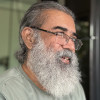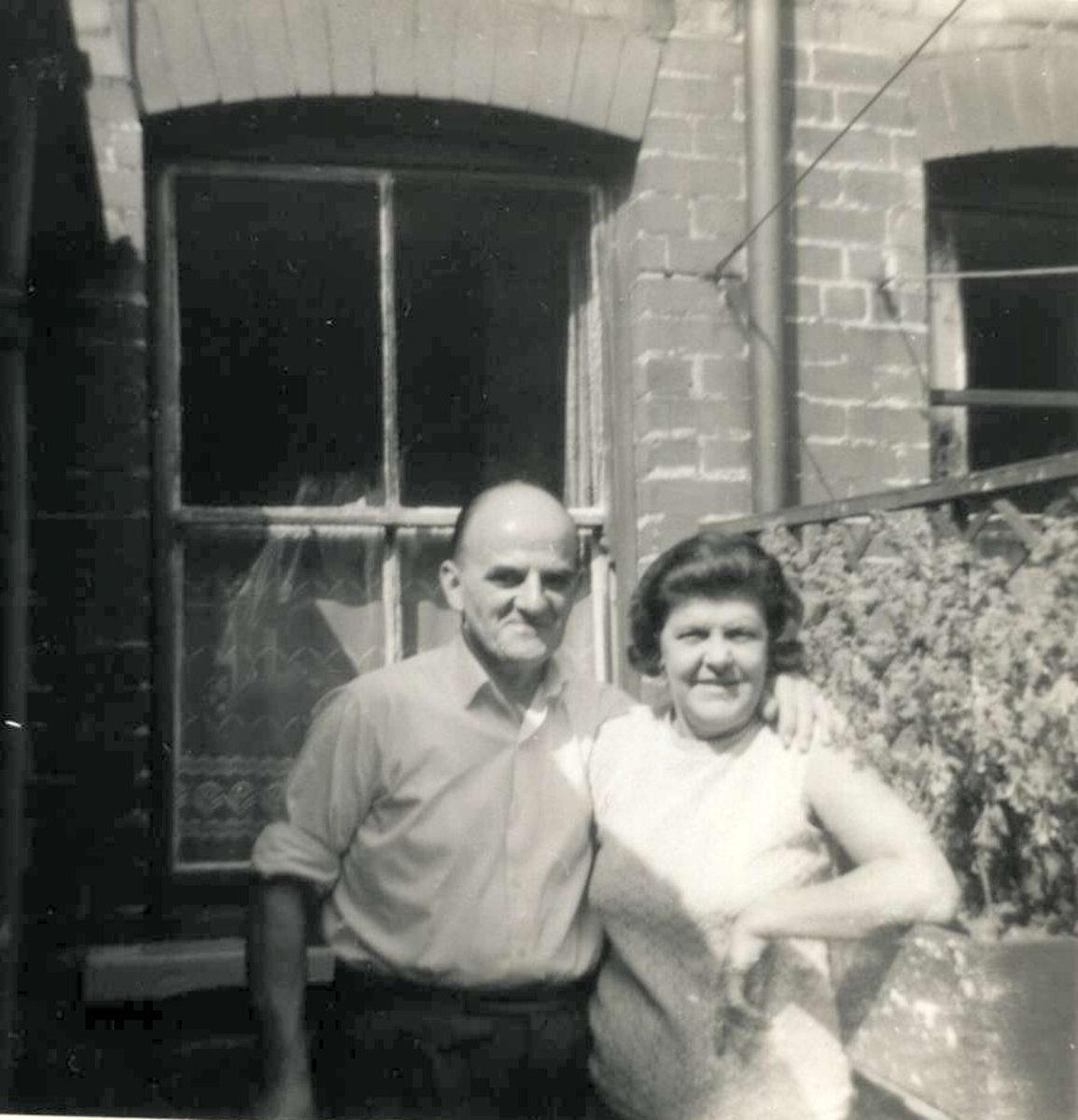Of Pebbles, Politics, Mind, and Matter: Chapter 7

The story so far:
A string of apparently-nasty but eventually-benevolent upheavals elevates a reclusive Charuchandra Chimalgi to the chair of a cabinet minister in the state government. Read the seventh chapter of "Of Pebbles, Politics, Mind, and Matter" to find out how an approaching milestone in his career creates unease in his mind which he considers to be a premonition of another upheaval that is soon to come.
If you wish to revisit the first chapter at this point, please click on the following link:
If you wish to revisit the second chapter at this point, please click on the following link:
If you wish to revisit the third chapter at this point, please click on the following link:
If you wish to revisit the fourth chapter at this point, please click on the following link:
If you wish to revisit the fifth chapter at this point, please click on the following link:
If you wish to revisit the sixth chapter at this point, please click on the following link:
If not, please scroll down to read the seventh chapter titled "Thought and Event Chains".
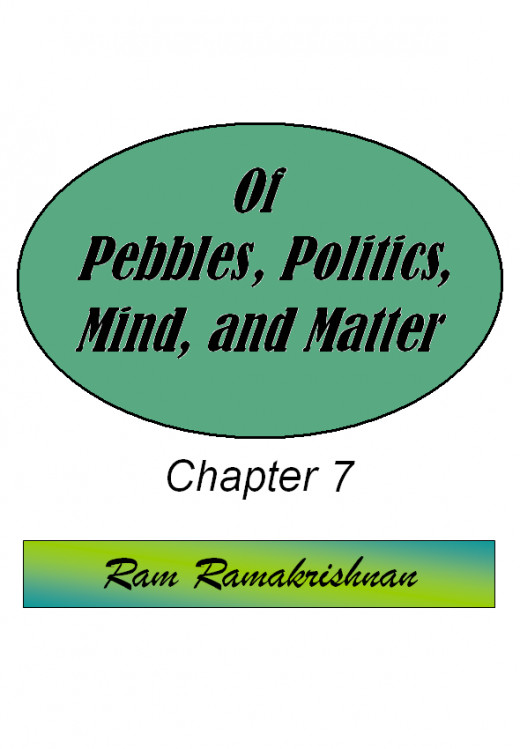
Chapter 7: Thought and Event Chains
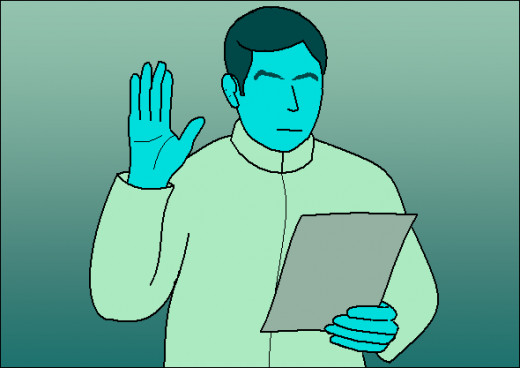
Though unexpected, the turn of events left most people at the scene of crime reasonably satisfied.
The police officers had been given instructions to see to it that charges brought against Rajvanshi on the basis of evidence gathered, were serious enough to keep him in prison for a long time. Despite being associated with the ruling party in the legislative assembly, he was proving to be a great liability to the public image of the government, and providing the opposition with ammunition to accuse it of being insensitive to the plight of the people, while the drug-peddler carried on his activities openly with impunity on the strength of his closeness with people in power. His death was a god-send for the law-enforcers.
God-man I was relieved that his alliance with Rajvanshi, which was like a metaphorical weight around his neck that was getting heavier by the day, had been removed, never to be experienced again.
Only Charu and Jerry anticipated this possibility and had also noticed the lack of surprise on the faces of the god-man and the drug-peddler on seeing the sham-priest alive and the contrasting reactions of all those involved, when the script of the happenings at the prayer hall sharply deviated from what had been pre-decided. They were the last of the visitors to leave the prayer hall and Charu looked up at I, still seated on his throne. Their eyes met. Charu's gaze conveyed his suspicion about the god-man being involved in the changed course of events. I's reciprocal stare conveyed his apprehension at the possibility of Charu suspecting his involvement. The two disengaged their visual connection with each resolving to probe the matter further and in earnest.
"I suppose the new development closes the episode. From the government's point of view, you would have done a good job as the chairman of the probing commission," commented Jerry, as the two were returning to Charu's residence.
"The real culprit hasn't been caught yet, Jerry. Did you notice I's behavior?"
"Yes, I did, and have no doubt that he was equally involved. But this incident would make him tread more cautiously when dealing with his devotees, which in my opinion, is your commendable achievement."
"But I am not satisfied, Jerry. In a few weeks from now, everything about this incident would be forgotten and I would have got back to his old ways, duping devotees."
"Look, Charu. I is merely marketing his wares. It is for the consumers to discern and decide what is good for them and what isn't. It is something similar to companies and traders selling tobacco products and liquor. People know it would affect their health, yet they buy, and use them. What I does is something similar. Why treat and judge him differently?" asked Jerry.
"I am not judging him for what he does to his devotees in general, but to those two families in particular and now to his own former employee - the sham-priest. They were my responsibility."
"Charu, you are again mixing up your official and personal realms. Each is distinct. You have done your best in your official capacity, within the ambit of the limitations imposed upon you. Just leave it at that."
"Will you support me if I were to continue this probe in my official capacity, if I find that there is something that could be done, and if the government were to agree to it?"
"You don't have to ask me, Charu. You know my answer," said Jerry, looking hurt. "But do consult me before you take any severe action."
"I promise you that I will," said Charu, his mind already in deep contemplation.
* * *
The following day, a memorandum from the office of the chairman of the enquiry commission looking into the charges against god-man I, reached the Minister for Internal Security, seeking an extension of time to continue the probe citing the suspicious manner of happenings at god-man I's hermitage the previous day. It said that the suicide of Hemant Rajvanshi and the confessions of the sham-priest indicting Rajvanshi for the killing of the members of the two families answered only some of the questions associated with the matter, but not all. The chairman intended to find answers to the remaining ones too, until he was satisfied with the supposed innocence of the god-man.
There was also a communication from god-man I to the minister to say that he had kept his part of the bargain by being a party to the process of neutralizing Rajvanshi in his unholy endeavor of toppling the government and that the least that the government could do as a recompense was to drop all pending charges against him and wind up the commission of enquiry.
The minister found the god-man's suggestion more appropriate for the present climes. Dissidence in the party had been curbed, the opposition was caught on the wrong foot, and the party's image had been restored. This was no time for further probes, accusations, and trials. It was an environment for practicing the exalted principle of "Live and let live." There would come a time to pursue the "Live and hound the others" theory, but it certainly wasn't now.
To make the end-game a smooth affair, the minister, who was the real power behind the government, decided to elevate Charuchandra to the post of a minister in charge of a relatively and politically insignificant portfolio, transfer the chairmanship of the commission of enquiry to a more pliable person, and have it quietly closed. The party was anyway considering Charuchandra's elevation in the near future on the strength of his popularity with the public, and advancing the happening by a few months wouldn't disturb this, particularly when the ministry in contention was held as an additional charge by the Chief Minister.
Orders were quickly passed and Dr. Charuchandra Chimalgi was inducted as a cabinet minister in charge of education at a simple ceremony. Snigdha read out a prepared thanksgiving speech on the minister's behalf at the press conference that followed. A messenger arrived at the venue from the hermitage of I, conveying the god-man's blessings for the newly inducted minister and wishing him a long tenure.
A reasonably extended period of political stability was ushered in the state.
* * *
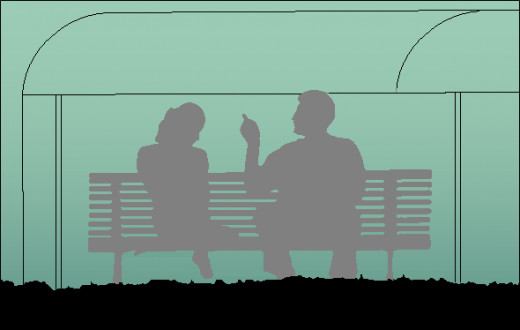
Charu plunged wholeheartedly into learning the nuances of his new job. Officials at the ministry were a happy lot to have a greenhorn for a boss. The flippant and wayward among them could afford, at least for a while, to indulge in their own little whims, without the new minister breathing down their necks. However, this was not to be for long, as they were to soon find out to their dismay.
To start understanding a thing from its definition was Charu's preferred technique, and he started learning about his job with a deep, contemplative analysis of what education meant in its widest sense. It was always helpful to have someone patient and receptive to bounce one's thoughts off during such exercises. His wife Snigdha was ideal foil for the purpose. To be meaningful, the effort demanded a serene environment; the pond-bank provided the perfect setting for it.
And so it was that Charu and Snigdha could be seen every evening discussing the subject of education threadbare, shredding even the threads into unrecognizable bits of fabric. Needless to say, for every shreaded thread, a pebble from the pond-bank found its way to the pond-bed.
"What is education?" began Charu, at their inaugural sitting.
"I see it as a series of experiences that have an enduring, decisive, and formative effect on an individual that manifests later as enhanced physical or mental ability or strength of character," replied Snigdha.
"A perfect answer, I should say," commended the indulgent husband, which brought color to the embarrassed, yet happy wife's cheeks.
"I am sure you have something more to add to that," said Snigdha.
"I meant it when I said that your answer was perfect. There is nothing more that I can think of to add to it. But I would certainly say that education could be thought of as another name of life. From the womb to the last breath, it is a continuous and relentless process of learning at one level or the other of our conscious self, identified by the three prefixes to the adjective 'conscious' - 'un,' sub,' or 'fully.' We are enrolled at school from the moment we are conceived and only our death marks our exit. There is however, no certificate awarded at its completion."
"Your reflection takes the charm and excitement out of the concept of education, Charu, although I cannot find anything unreasonable in your surmise. It makes life appear meaningless."
"It is precisely for this reason that the idea of god has been invented - to make the meaningless seem meaningful, and the attainment of godhead made the ideal - the certificate that is granted at the end of schooling."
"Aren't we digressing too far from the topic that is relevant to what you are supposed to do as a minister?" asked Snigdha, feeling uncomfortable with this line of deduction.
"It is good to have an overview before dwelling on intricacies. It provides a wholesomeness to the exercise, which it would otherwise be lacking," countered Charu. "Now that we have this global perspective of education, let us steer our discussion to the more immediate concerns. Do you have any definite views on what the state should promote in the name of education?"
"I would say that it should promote all that leads its citizens to live in peace and harmony."
"That is a very general statement and the words 'peace' and 'harmony' are very nebulous notions. Your opinion is in line with what can be expected from the conceptual personality of a woman, who is preoccupied more with the notion of preservation than propagation."
"Yes. Men can think only of war, domination, and exploitation," said Snigdha, contemptuously.
"Another very woman-like observation," griped Charu. "I believe that education should encompass all manner of knowledge. Harmony, in my opinion, is achieved when the forces of war and peace are equally balanced."
"Our arguments seem to be going back to the ethereal level rather than towards the mundane," complained Snigdha.
A brief silence helped restore peace between the warring slants of thought and bring back harmony.
"As you suggested, we will confine our conversation to whatever that would come under my jurisdiction as a minister of education," said Charu at length, extending a notional olive branch towards his wife, which was gracefully accepted.
"Continuing to dwell on the philosophical plane, but at a more accessible and pertinent level, do you think the state should involve itself with the activity of education? Can't it be left to private enterprise? Won't the demand for and delivery of education find their own level of equilibrium in a society, depending on the needs and aspirations of the said society?" asked Snigdha. She had been through a government school that had lacked many of the facilities available in private schools and had been pretty sore about it.
"If your experience as a child is what is making you say that Snigdha, then you should keep in mind that had the state not been involved with education, you would not even have been able to get the education that you did. I went through the same experience as well. Private schools do have facilities, but they are expensive too. Mother couldn't have afforded to send me, and then you, to a private school, considering the conditions that we were in after father passed away, when I was only a toddler."
"Private schools do set aside a certain proportion of seats for the underprivileged," countered Snigdha.
"Yes, they do. But such allocation would hardly cater to a small proportion of the population of the underprivileged. Many of the private schools wouldn't do this if it were not for state intervention. None would want to part with profits unless there is the fear of ridicule or punishment to goad them to do so. There are a few philanthropists who are kind enough to provide free education to the disadvantaged voluntarily, but many do so only under duress. The state is, therefore, an important and necessary actor in this scenario, without whom there will be no equitable society."
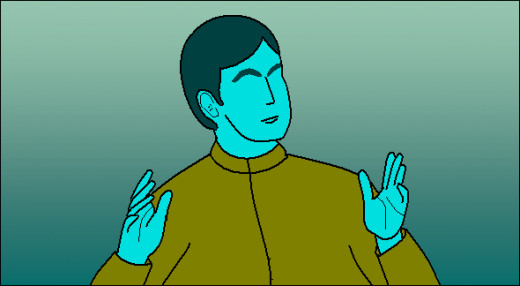
"Will you be looking after only modern education or does the state also have a say in the affairs of alternative systems of education? I believe a Bill was passed by the assembly recently and that awaits the governor's assent, to treat alternate forms of education at par with the modern one that is widely prevalent now," asked Snigdha.
"Yes. There is to be a cabinet meeting tomorrow to set the ball rolling on this scheme. It is quite late today, Snigdha. Shall we continue our discussion tomorrow?" asked Charu and followed it up with a loud and ostentatious yawn.
Keeping up with the elevation in his status, the pond-bank at his ancestral house had been provided with a foldable plexiglass canopy that provided a clear view of the sky and yet protected those seated under it from sun and rain. Charu pressed a button, to start the mechanism through the process of folding and compacting itself. The soft hissing sound of the pneumatic device was a pleasure to listen to, and the couple made it a point every time to wait hand-in-hand, until the process had ended and then retired for the night.
* * *
The cabinet meeting that took place the following day turned out to be a stormy affair. What was scheduled to be an hour's gathering continued for almost three. The bone of contention was the extension of government aid to institutions that catered to alternative systems of education. Objections were based upon a range of views. There were those who strongly believed that anything associated with the past was irrelevant to modern times and should not be encouraged. There were many who thought it would promote partisan religious ideas and principles to cast their shadow upon science and lead to deep schisms in society. There were a few who vehemently opposed it on the grounds that the original culture of the land should be preserved and alien ones not allowed to flourish. And there were a few others who saw in this action a diminution of their personal importance in terms of access to funds and authority, and hence resisted it.
There were a handful, who supported the move, and among them were the chief minister and the all-powerful minister for Internal Security.
Charu, couldn't help sympathizing with all of them, for he saw them all in the light of his model that described their thought processes as a function of the information recorded in their unconscious self at birth - over which they had no control; of the information accumulated in their subconscious self attributable to the manner and environment in which they were nurtured, schooled, and trained; and of the impressions stored in their conscious self, based on their recallable experiences so far. They were all prisoners of their mindsets, just as he was of his own. It would be futile to expect anyone to drastically change their points of view. What could be hoped for through a discussion was a marginal but acceptable lessening of disagreement, and Charu plunged into the defense of the government's decision in earnest.
"I will offer my arguments for each of your objections and hope that they seem reasonable to all of you," he began, in his relatively slow manner of speech generously interspersed with pauses. With increased public exposure and a woman having come into his life, his communication skills had shown a marked improvement over the past year.
"Take the simple example of writing. Increasingly, with the use of computers, the habit and skill of writing using a pen and paper is gradually declining and perhaps in the not-too-far- distant future, would be completely lost, with the expected advent of a paper-less society. One could say that humans never had a script when they developed language. It followed after spoken language had evolved to a fair degree of sophistication. Would this fact justify the termination of teaching writing skills at school, because it would then be an ability, which would be hardly used and could be dispensed with? Unarmed martial art is another example that could be quoted. In today's technologically sophisticated environment and the direction that it is heading in, one need not be in the physical presence of an enemy to be exposed to a threat. There will be any number of ways to cause harm from a distance. Would this mean that such education should be stopped from being imparted? We can come up with countless such examples, which will emphasize the relevance of all knowledge in the current context, though with a modified emphasis. Our efforts then should be to create an awareness about this shift in prominence and significance rather than consigning a body of knowledge to the dustbin. We will certainly not attempt to resurrect anything, but if there is something already existing with a reasonable following in terms of numbers, a state with a truly secular and open-minded philosophy is duty bound to support such institutions, particularly when they do not have sufficient resources to manage them."
Charu looked around to see how his arguments had fared. His two main supporters sported smiles of satisfaction and were nodding their heads in appreciation. Those opposed to this reasoning sat glumly, not being able to cook up an effective rebuttal. One of them however, was determined not to give up his stand without a fight.
"I have nothing in principle against what Dr. Chimalgi has said. But the meager resources of the state would be unnecessarily stretched. We would be denying funds to a more important requirement by diverting a slice of it to things not as productive," he said.
"You certainly have a point there," replied Charu. Jerry had tutored him on the art of defusing a dispute, which had a potential of aggravating into a fracas, by first agreeing to the other's point of view and then working around it to strengthen one's own. "But if we were not to support them, they would soon become defunct and we will have a large number of persons who are rendered unemployed, lacking any other skill to start life afresh, and becoming an additional burden upon the social security system. The government will end up spending more on social security, which is surely the more unproductive alternative."
The smiles on the faces of the two senior ministers became more pronounced and their nodding had become more vigorous, leaving none in the gathering with any doubt that they unreservedly endorsed Charu's rationalizations.
"The next objection that some of you raised was that it would promote partisan religious ideas and compromise the scientific temper. Yes, it would, if we were to allow people to use such institutions towards such narrow ends. The onus of preventing such things from happening rests with the government. It can occur even when these establishments are in private hands. It is all the more reason that they are not so. By having a semblance of control over them, the state can guide them to be more in sync with society and contributing to its enrichment and at the same time save them from dissolution," continued Charu, flush with the victory in his first argumentative bout.
"Such things are easily said than done," replied one of those disinclined to the idea and not satisfied with Charu's justifications.
"Please tell me whether there is anything that is more easily done than said, except saying itself?" countered Charu.
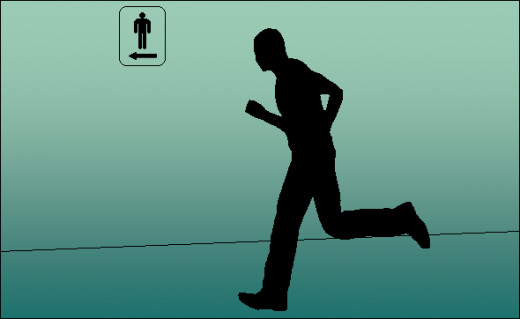
"That is merely rhetoric. Do you have a concrete suggestion about how to make people who look to the east each morning and those who look west, to rather look at each other and work together?" the dissenting minister persisted.
"Yes. I do. It would be by encouraging them to continue to look east and west, but by making the respective community leaders make their flock understand that they seek the same thing wherever they look, which they could find and attain if they also looked at each other after having looked at their preferred directions first as part of their chosen but essentially symbolic ritual, and then turn back to work together for the betterment of the community and the nation. It would also greatly help if those amongst us who prefer the east also look to the west occasionally and sincerely and those who look at the opposite direction do likewise, setting aside prejudices. As public representatives, we could take the lead in doing this. Any change takes a long time in happening, particularly if it is for the good. If we resolve to do it, it would come," declared Charu.
The gathering was bathed in awed silence for a brief while.
"But for his sluggishness of speech, he would make a good orator and perfect material for election campaigns. Do you think he can be trained to speak faster?" the chief minister asked his colleague in an undertone.
"I am told that he has a congenital speech problem. His wife speaks well and has also accompanied him occasionally to deliver his written speeches. They would make a good team together," whispered back the other.
"Remember to draft them for election work whenever we have our next campaign," said the chief minister softly, and then clearing his throat, asked aloud, "Are there any more objections to be cleared or do we declare the resolution as passed?"
Dr. Charuchandra Chimalgi was in his elements and refused to vacate his place by the tabletop microphone. "I am not finished yet, sir. There are still two other points that I have to answer to."
The chief minister glanced resignedly at his watch and said, "Fine, go ahead. But try to keep it short."
"Yes, sir," assured Charu and plunged back again into the defense of his position with renewed vigor. "Some of you spoke of our original culture. I would say that the notion of something being 'original' is very relative."
Charu paused to sip water from the half-empty glass in front of him. This was one of the secrets to his improvement as a speaker. The therapist had suggested that he constantly keep his throat wet for a smoother and faster flow of words. The measure had certainly helped. The count of his water sips so far had crossed the mark of twenty since he started speaking and this was the fifth glass of water. The exercise had its negative spin off as well. It required him to go to the loo to empty his bladder frequently. At the moment, it was one such situation and he was making a great effort to control the urge to rush away, until he had finished his arguments.
"Even the stardust from which the solar system and the planets were created isn't original, being created from remnants of earlier galaxies and stars. How could we, created out of the same stardust, and the cultures that we spawn, claim originality?" he demanded. The pause that followed appeared to be a strategy to let the true import of his statement to sink into his listeners. It was, however, only a ploy to adjust his stance to make it possible to control his urge to attend to nature's insistent calls.
"Culture is merely an institutionalization of convenient practices of a particular era. They change with time. Do you think we follow the same culture that existed a thousand years ago, five thousand years ago, or ten thousand years ago? If you do, then I must say that you haven't read your history lessons properly - not history as interpreted by zealots, which is only faith, but that based on literary, archaeological, genetic, and evolutionary researches. Our culture today is one that is filled with hatred, suspicion, and one-upmanship. If this is the culture that we have inherited, then we don't need it," almost thundered Charu.
The listeners thought that his intensity and fervor was a reflection of his total belief in what he said. Only he knew that, though this was true, the forcefulness was due to a more urgent and mundane cause.
"And finally," said Charu, hiding his squirm in the act of swatting a nonexistent fly, "if anyone feels that their importance will be lost if I were to be involved in the process of implementation of this government decision, I will have no problem in working in the background and letting anyone wanting to take credit for it, do so. If you will excuse me, I will be back with you in a few minutes, while you ponder over whatever that I have said. We can conclude our meeting, after all of you have been satisfied with my clarifications. It would be good to have a unanimous decision without any dissent."
The last of his words were almost inaudible, as Charu rushed out of the meeting hall towards the men's room.
The meeting concluded soon after his triumphant return, with the cabinet taking an undisputed decision, and Charu was doubly relieved in quick succession, each relief as important as the other was.
* * *
That evening, he narrated the day's happenings to Snigdha.
"Did they truly accept your point of view or were some of them forced to do so for fear of being seen and labeled as spoilers?" she asked, after having listened to it.
"Does it make a difference? Everyone has their own reason for agreeing to something. We cannot be choosy about that. The point is that they did not have any reason, which was compelling enough for them to oppose the idea."
"I suppose that is a positive way of looking at the situation," said Snigdha smiling.
"It is the only way, which leaves you at peace," replied Charu, stretching himself, reclined as he was on his cot, and gazing at the star-studded canopy that was the sky. "But I am beginning to wonder whether there is another way of looking at happenings to account for them."

"I didn't quite get what you meant," said Snigdha, her gaze too straying towards the expanse of the sky, following that of her husband.
"You know, Snigdha, stargazing has been a fond pastime for me ever since childhood. When I learnt to identify individual stars and the planets of our solar system, I began to follow their movements regularly and realized that the positions of the planets relative to each other and the stars were always unique. Initially, I thought that this distinctiveness would be maintained for a few years and then the patterns would be repeated. However, a few astronomical calculations revealed that the inimitability is valid across millions of years, perhaps for eternity. Each moment, the sky has a distinct pattern of celestial bodies. If fractions of an arc were to be considered as the unit of measure, then this uniqueness is attributable to every point on the surface of the earth. "
"Something makes me feel that you have had a change in heart towards the subject of astrology, which you have been strongly opposed to until now. Am I correct in my inference? " asked Snigdha, interrupting him.
"Incorrect. There has been no change of heart and I am still opposed to its practice. Perhaps, the subject has had its origins from observations similar to what we do now, but that is not what I was getting to. I was only trying to draw a different kind of parallel between the celestial and societal happenings. "
"Go on, I am listening," prompted Snigdha.
"One way to explain the constantly changing positions of the celestials, is to consider their varying speeds and trajectories under the effect of gravitational forces. This view could be called 'The vision of the universe based on the motional potential of bodies. ' The societal parallel to this would be 'The vision of society based on the thought potential of individuals. ' Thoughts propel individuals into action and stimuli from the environment, which are akin to the gravitational forces in space, affect individual thoughts and provide them direction. Are you with me so far? " asked Charu, pausing to confirm that he had not left his wife behind in this shared journey of philosophical exploration.
"I am keeping pace, Charu. You seem to underestimate my mental capabilities even after having known me closely for over an year now," replied Snigdha in mock disappointment.
"Another view of the continuously shifting celestial patterns could be called 'The vision of the universe based on the positional pattern of bodies,'" continued Charu, disregarding his wife's jibe. "The sky is then a series of definite and pre- computable patterns that follow one another, the relationship between the elements in the pattern determined by their intrinsic characteristics like mass, composition, speed, distance from other elements, etc. On similar lines, society can be viewed as a series of location specific happenings that follow one another - being definite and pre-computable, as the celestial patterns - and the relationship between individuals that constitute a given pattern explainable by their inherent traits and the unambiguous interactions between them. What is your take on this line of thought? "
"In the celestial realm, there can always be an unknown body that suddenly makes its appearance and happens to alter all computations and hence the patterns, is it not? " asked Snigdha.
"Yes, that can certainly happen. But that object which causes the supposed disruption, would have been always there. It is just that we would not have taken that factor into consideration in our model being unaware of it. Once this lacuna is rectified, a new series of patterns can be visualized that would then account for things as they have happened, and are to happen in the future. "
"And you will extend that analogy to the societal scene also, I suppose? "
"Yes. "
"You can be quite scary at times with your ideas, Charu," remarked Snigdha, shaking her head.
"Instead of making such irrelevant statements, why don't you point out whatever that is illogical in my line of thought," demanded Charu.
"That is precisely the point, Charu. I cannot find anything irrational in what you have said, which is what makes it forbidding and intimidating. Your theory seems to take away the fascination and glamour from living. "
"It doesn't, Snigdha. Those emotions too are part of the ever- changing societal pattern. Despite the possible validation and applicability of this theory, all sentiments that we are conversant with will remain and hold sway upon us. The theory would be incomplete and invalid without them. "
"At the moment, Charu, I agree to whatever you say, because I am feeling too sleepy to argue," said Snigdha getting up. "Aren't you coming? You have had a long day too. "
"You go ahead. I wish to dwell and contemplate on this question of whether life is best explained as thought chains or event chains, for a while longer. What can be more inspiring for such a pursuit than a clear night sky with an occasional shooting star to spark the imagination? This digression may possibly provide me with the means of deciphering the strange and intriguing association that events in my life have with the number six. "
Snigdha would have preferred a tender and romantic time under a clear night sky with shooting stars thrown in. She was, however, reconciled to the certainty of having to imagine and accept a different definition of romance, now that she was wedded to Dr. Charuchandra Chimalgi.
* * *
Five years went by with Charu at the helm of the ministry of education. There were many achievements, a few minor gaffes, and fewer blunders, during this time. On the whole, it was seen as a successful tenure by all concerned that included his admirers as well as detractors, the one hoping that he continued in the capacity and the other doing their best to have him dislodged. There was a general election in between, in which his services were utilized as the party's ideologue, a responsibility that he discharged most effectively. Snigdha accompanied him at a few election meetings and spoke on his behalf. Her participation had to be limited because the Chimalgis had had their first child - a boy whom they named Avyay.
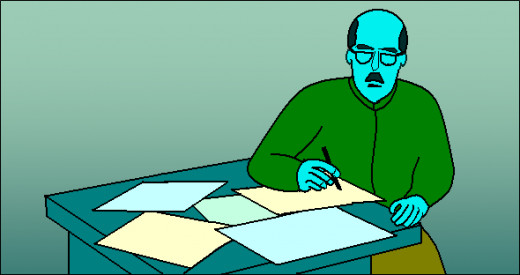
Life meandered on regardless of what each one wanted or did not. When a happening that they hoped for did occur, people credited it to their own untiring efforts, when they did not, fate was declared to be the culprit. And in the midst of this process, the sixth year of Dr. Chimalgi's incumbency started. About two months into the said period, Snigdha casually remarked about it. The mention of the magic number, immediately triggered apprehension in Charu. His sixth sense - he had abandoned using that term for obvious reasons and referred to it as his unconscious-self instead - told him that it was time to go to the brink again and return. The agility and alertness of youth had helped him overcoming similar anxiety during earlier times. But middle age brought along with it a certain level of diffidence towards excitement and activity of the sensational kind. He could only hope that the duration of the impending episode would not last too long.
* * *
It was the thirty-seventh year of Syed Tayyab Hussain's employment in the ministry of education. He had joined in the clerical cadre and slowly risen to become an under-secretary in these many years. His family believed that he could achieve it primarily on the basis of his sincerity towards work and the principles that he held dear. Tayyab, as he was known widely at his work place and among friends, knew better. He had known corrupt officials who had risen faster and attained greater heights and also known equally sincere colleagues who languished at the lower rungs, and felt that there were factors other than sincerity and adherence to principles that were responsible. Being an avowed communist, he had denied himself the option of attributing everything to god. Addicted to the habit of exhorting his juniors to follow a conscientious work culture, he had closed the doors on lady luck too being a candidate upon whom the aspersion of unduly favoring some, and not others, could be cast. He just plodded on, reveling in his sincerity, his addictive bouts of exhortation, and his fondness for chewing betel leaves lined with tobacco and lime. There were however, a few things that he did, which stood out and had his uniqueness stamped upon it. The most striking of these was the naming of his two sons. The first was named Jehangir Brezhnev and the second Farookh Podgorny. It was his way of declaring to the world his political leanings and his sense and belief in the idea of universal brotherhood.
Tayyab had met Minister Charuchandra Chimalgi for the first time during the launch of a school for underprivileged children by a pioneering woman. Like the minister, Tayyab too had wholeheartedly appreciated the woman's bold and earnest endeavor. With the government coming to her aid officially, Tayyab had gone all out to help make it a success. A mutual liking had been established between the two - the minister and his under-secretary - though there was a great difference between the two in age and status. Tayyab Hussain was about twenty years older than Charuchandra. The liking developed into friendship with time.
It was Tayyab Hussain who first noticed the anomaly in the results of a government aided private school located in one of the smaller towns of the state. It had been established about five years ago. On paper, the credentials of the school looked quite impressive. It was supposedly run by a trust set up by a philanthropist and boasted of a spacious school building, vast school grounds, and a student-teacher ratio of 10 to 1. Such facilities were much too impressive for a small town. Eyebrows were raised at the ministry and Tayyab Hussain was deputed to go and check out the veracity of the claims. The then field officer Hussain had made the trip and had been shown a large tract of fenced land with a board at the gate, which had the name of the school and the trust. In the centre of this plot stood a building, which appeared more like a factory than a school. He was told that it was a temporary structure and that the trust was hoping to receive funding from certain charitable institutions very soon, on the receipt of which permanent classrooms would be built.
Inside the factory shed, Tayyab Hussain was introduced to a row of men and women who were supposed to be teachers, though they looked more like laborers. He had attempted to strike a conversation with a couple of them, but each time his guide had intervened and had spoken on their behalf. There were no students in sight and when asked about it, he was told that the school had been closed for the day in view of the inspection, and if he would like to see the school on a working day, he would be welcome on another day. It being a weekend, Tayyab Hussain had neither the inclination nor the official sanction to stay on in the town until the beginning of the following week. He had also decided to file a report that reflected his misgivings about the institution, though not summarily rejecting the request for permission. This clemency on his part was craftily ensured by his host by lavishing every manner of convenience for his stay there. The host also seemed to have advance information about his personal likes and dislikes. There was no bribe offered which would have surely antagonized him. Instead, there was made available a generous supply of balls of folded betel leaves embedded with strands of the best quality of tobacco and lime paste, for Tayyab to chew upon whenever he wished. This was his one failing in an otherwise impeccable array of traits, and the host exploited it - or was rather told to do so - to ward off a direct refusal of permission. The maneuver had worked.
A month after Tayyab Hussain filing his report on the unsatisfactory conditions at the school in the small town that sought permission for government recognition and sanction of funds, the application was passed by his immediate senior, citing compliance with all conditions by the applicant made in the earlier report by Hussain. The need for a field-check by an officer from the ministry was waived and the reason given for this was the supposedly immaculate public service record of the Trust under whose aegis the school functioned.
Field Officer Tayyab Hussain did not like it, but he had no grounds to question his superior's actions, though he knew that person to be endowed with dubious honesty. The months flew by and all that remained of this series of incidents were memories tucked away in some dusty corner of Tayyab's mind.
A queer happening made this almost forgotten shard of memory to be speedily retrieved from its dark corner. It was the annual performance review time at the education ministry, when government run and aided schools were judged based upon the examination results of its students. As usual, there were schools with accomplishments of every shade - from brilliant to dismal. But there was one school that wouldn't fit into any of the ranking categories. For the first time ever, a school had managed to coach students, all of whom failed in the annual examination. It was the school from the small town run by the devious Trust. Obviously, it made many people at the ministry sit up. Most of those who did, however, had their spinal cords droop back to their habitually sloppy state. All, except two - Tayyab Hussain and his immediate superior.
Tayyab quickly drafted a show-cause-notice to be sent to the school management declaring the ministry's intent of withdrawing recognition unless valid reasons for this miserable performance were furnished. His superior called Tayyab's one-time host in the small town and dictated a letter of regret that outlined in the most humble terms, an absurd set of explanations that led to this unwarranted result, seeking forgiveness, and promising better results in the following year, and asked the man to reach it to the ministry's office and specifically to his table by the same evening.
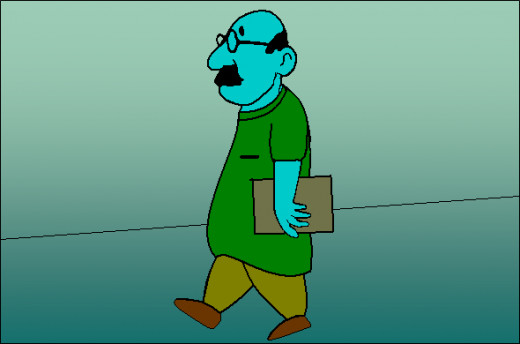
The letter from the small town reached Tayyab Hussain’s superior’s desk faster than the outgoing show-cause-notice from a few cubicles away, which had to be first transported by an indolent attender for being typed by a lethargic clerk, who would then detail yet another lazy messenger to carry it back to Tayyab for his approval and signature, which would then await the indulgence of a third lackluster courier to carry it to the superior’s desk for his final approval.
The selectively fair-minded superior granted precedence to the document that arrived first and quashed the show-cause-notice in view of the self-effacing and deferential character of the submission received from the school management.
Tayyab was livid at this turn of events. He knew that this had been stage-managed with his superior’s active connivance, but had to swallow his frustration with the help of the juice that he could extract from a larger than normal number of his daily share of lime-paste-lined betel leaf balls with embedded tobacco.
Another year went by, during which the memories of the incidents involving the school in the small town went back to their dusty and dark corner. Tayyab Hussain was promoted to the post of under-secretary, his superior retired, and he became acquainted with the new education minister Dr. Charuchandra Chimalgi. And soon it was performance appraisal time once again.
The first bit of information that Tayyab Hussain’s eyes searched for in the report summary was for the errant school’s feat this year. With his felonious superior out of the way and a friendly and just minister in office, he was determined to deal with the school strictly this time. But to his utter surprise, the school’s name figured nowhere among the poor achievers, which prompted him to send a memorandum to his subordinates who had prepared the report, chiding them of being careless at their work and demanding a detailed report on the particular school. It was a peeved subordinate who walked in a short while afterwards and pointed to the concerned school’s name at the top of the list. It had achieved a hundred percent result with all students having passed with distinction.
It was unbelievable. No school had realized this manner of a turn around within a year. Tayyab Hussain decided to investigate. He asked for all examination papers of the students of the school to be rechecked. The exercise confirmed that the students had indeed done well. However, the person who had corrected the papers again, had added a note to say that though the answer sheets were in different handwritings, the answer content appeared identical in all of them. This fact had not been noticed in the earlier round of correction because the answer sheets had been mixed up and sent to different people to eliminate the possibility of unscrupulous examiners favoring students of a particular school.
To Tayyab Hussain, this seemed a clear case of wrongdoing and he decided to bring it to the notice of the minister.
* * *

Chapter 8: Bonding and the Bonded

Chapter 9: Made-to-order Conscience

Chapter 10: To the Brink and Beyond

